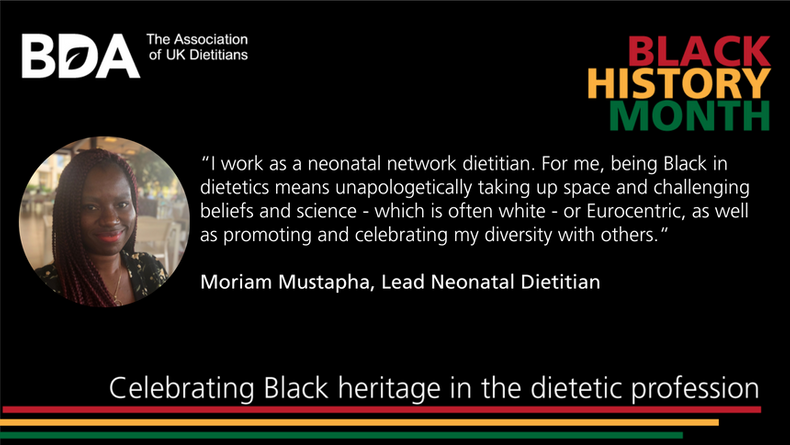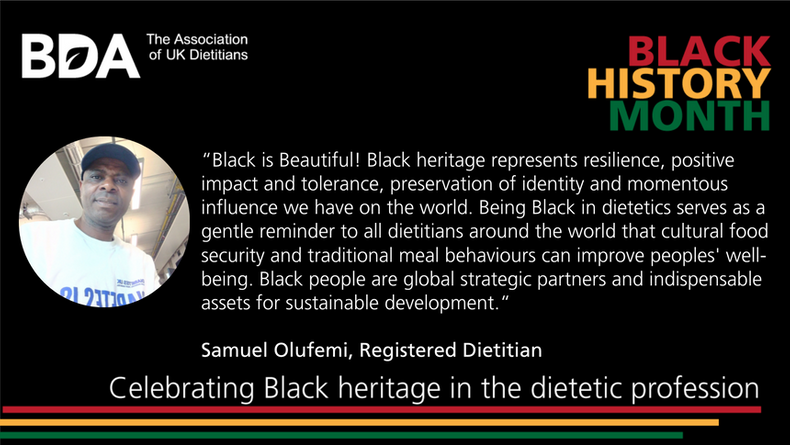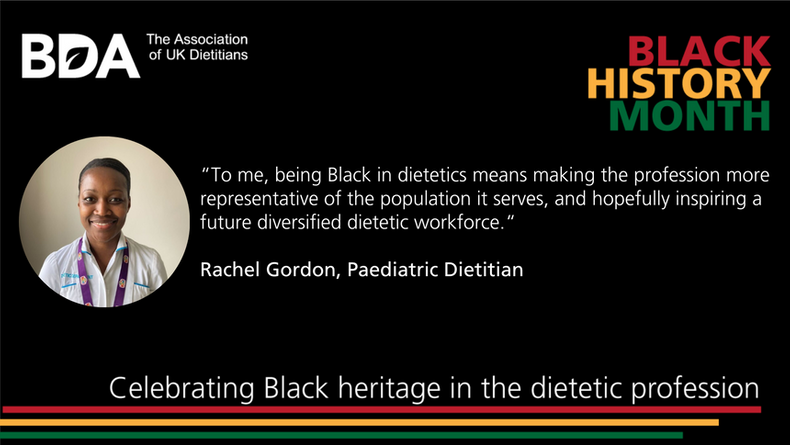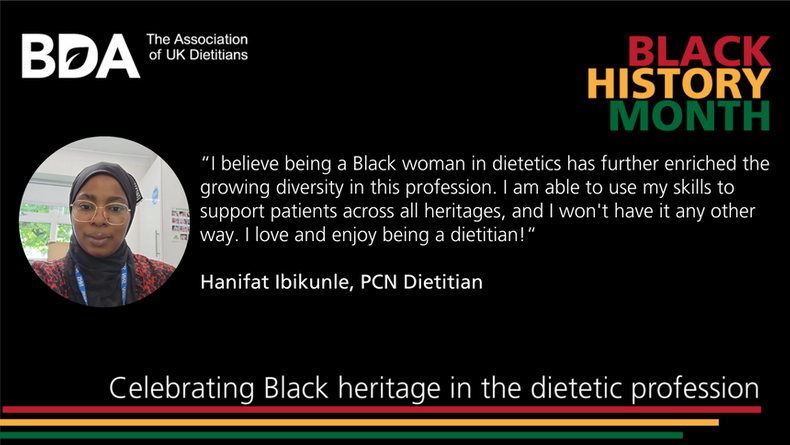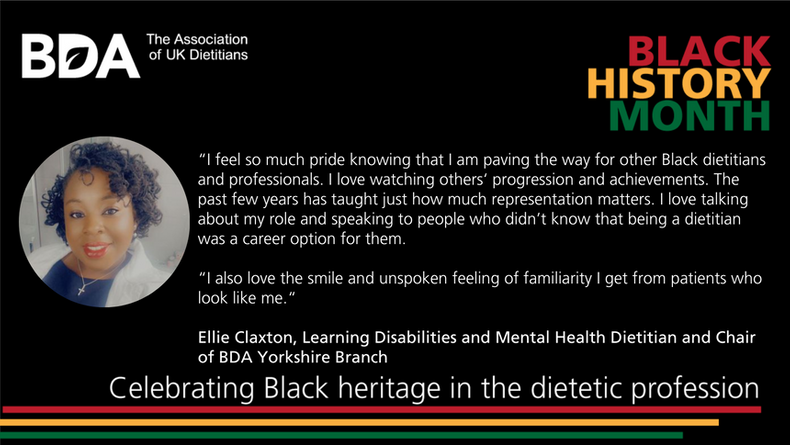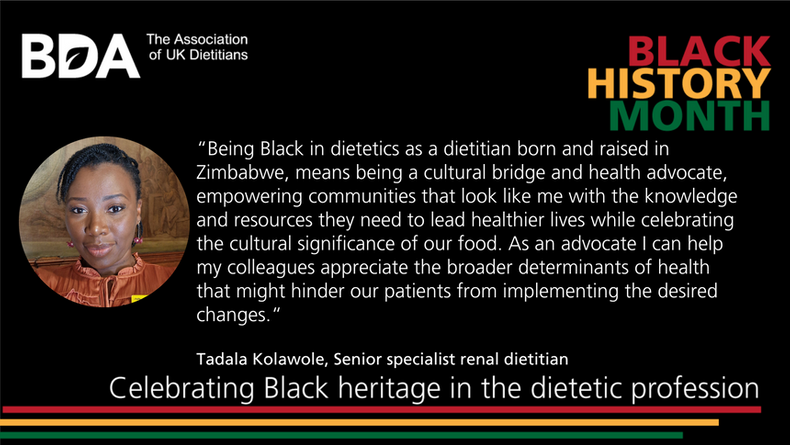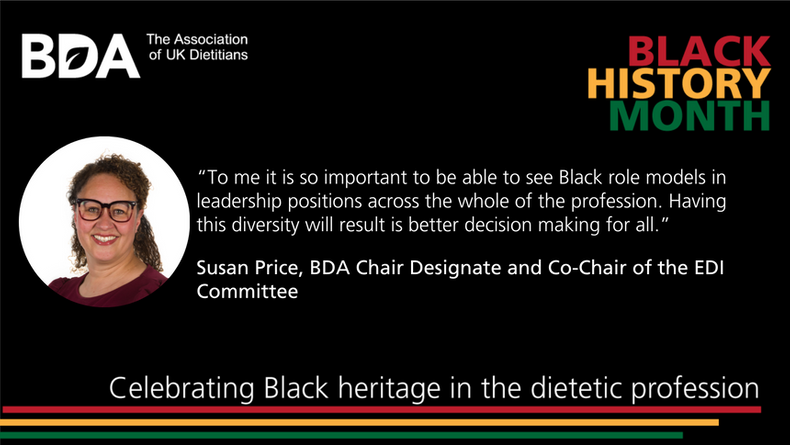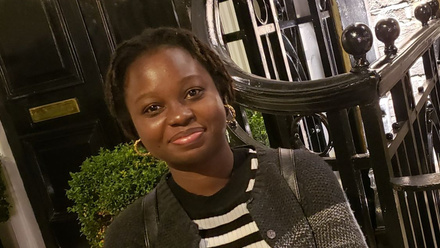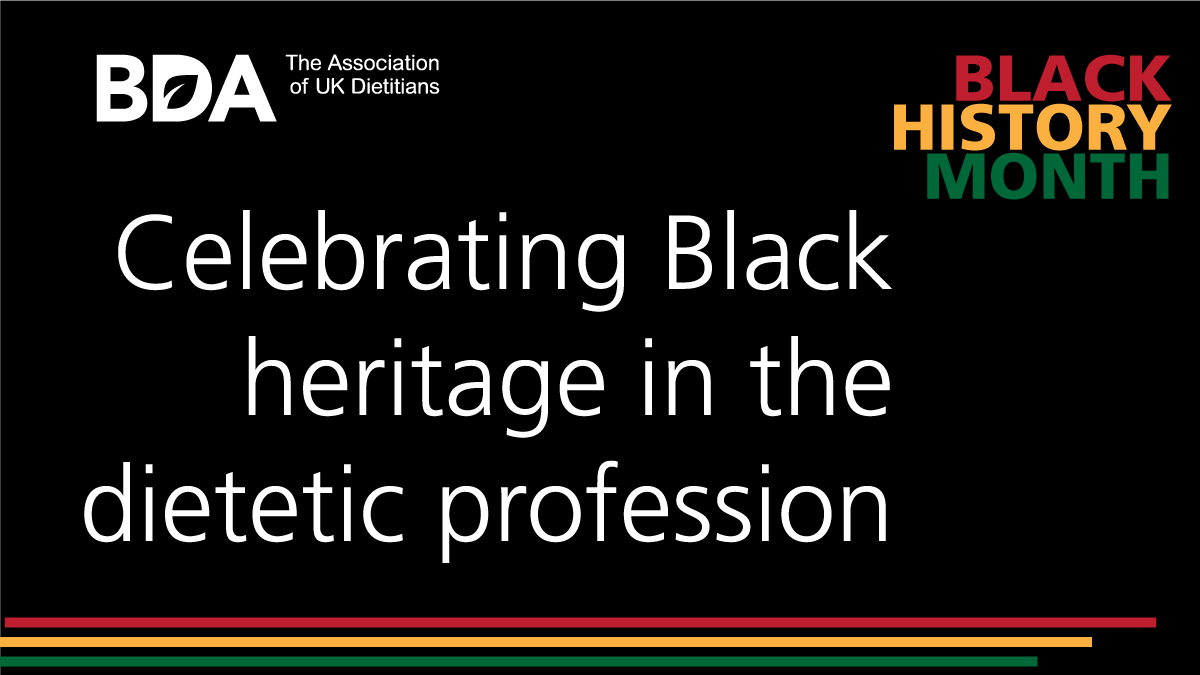
What is Black History Month?
Black History Month takes place every October in the UK as a way of celebrating the work of Black people throughout history.
The theme for 2024 is "Reclaiming Narratives". This year, and in particular in Dietitians Week, we have been telling members’ stories, your routes into dietetics and where your careers have led. This Black History Month we’d really love to hear from our Black members about your dietetic journeys, why you chose this career, what your experiences have been, your career highs, what’s your story? Email [email protected] throughout the month to share.
This month at our AGM, Susan Price will take over as Chair of the BDA, our first Chair of Black heritage. As you'll read below, representation matters and with 2.7% of our membership identifying as being Black British of Caribbean, African or from another origin or of a mixed ethnic background with African or Caribbean heritage (according to our latest EDI data*), there's certainly work to be done within the profession to reflect the diversity of the communities in which we work.
* This is the data collected from members in the My BDA area of the website. Some members may have chosen not to share this information with us.
What does our EDI Committee say?
Diversity in dietetics is crucial at all times and Black History Month is an opportunity for us to really reflect and educate ourselves on why a diverse approach to nutrition and dietetics, which is inclusive and culturally sensitive is needed. Embracing a variety of perspectives and backgrounds and including more dietitians from Black and other minority communities, enhances the profession's ability to address the diverse needs of the population we serve.
Diverse dietitians bring unique insights, allowing them to understand the dietary preferences, traditions, and challenges specific to various ethnic communities, including the Black community. This cultural competence fosters trust and openness between healthcare professionals and patients, leading to more effective and personalised dietary advice and interventions.
Representation really does matter. Having dietitians who reflect the diversity of the community they serve helps us work towards closing the gap in healthcare inequalities. Increased representation also challenges stereotypes and promotes inclusivity, leading to a supportive environment where everyone feels understood and valued.
Furthermore, diverse dietitians can actively contribute to research, policy-making, and education, ensuring that these aspects are sensitive to cultural differences and inclusive of diverse perspectives. This results in a more comprehensive understanding of nutrition-related issues, leading to better-designed interventions and improved health outcomes within minority communities.
In essence, embracing diversity in dietetics not only honours the rich culture of our society but also significantly enhances the effectiveness and impact of healthcare services. By encouraging and supporting more dietitians from Black and other minority backgrounds, the profession can better address the unique dietary needs of diverse communities, promoting health and wellbeing for all.
What does being Black in dietetics mean to our members?
Last year we asked you to share your thoughts.


